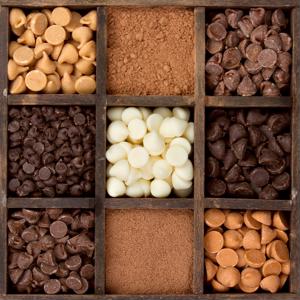Nestle, the world’s largest food and drink company, began the month of October facing a new lawsuit alleging that one of its products uses package labeling that misleads consumers to believe it contains cocoa butter. In the lawsuit, the plaintiffs – two bakers – allege that they bough Nestle’s “Premier White” morsels under the impression that the product contained chocolate, according to Confectionary News.
Though the “Premier White” packaging does not contain the words “chocolate” or “cocoa butter,” the plaintiffs argued that the labeling implied that the products were made using the ingredients in question, because they are placed on shelves directly next to other products containing chocolate and product labeling that states “100% real chocolate.”
The bakers also accused Nestle of misleading customers because it uses what they describe as “inferior” hydrogenated oils in its White Morsels. According to Newsweek, the filing claimed that Nestle “sells fake white chocolate baking chips and tries to market them as white chocolate.”
In particular, the plaintiffs said that they believed the morsels contained cocoa butter (used to make white chocolate) because of the product’s appearance on the packaging and the use of the word “white” in its name, according to Confectionary News.
“Reasonable consumers do not expect that the product does not contain white chocolate or inferior ingredients such as hydrogenated oils. Indeed, Nestle is synonymous with chocolate [sic], not oil,” the filing claimed, per Confectionary News.
The October lawsuit comes as Nestle faces another suit filed in 2019 related to its use of a non-GMO label on products that the plaintiffs believe contain milk from cows fed genetically modified foods. Nestle stated that the seal had been granted by a third-party for the products, while the plaintiffs argue that the seal resembled those given out by the Non-GMO Project, one of the main organizations certifying foods as lacking GMOs. In September, a federal judge in California dismissed a motion by the company to stop the lawsuit, according to Top Class Actions.
Yet another class-action lawsuit was also reopened against Nestle at the beginning of the year alleging certain products used labeling that misled customers. The items in question contain labeling that states “sustainably sourced,” and the plaintiffs allege that ingredients to make them were procured using child labor in West Africa, according to the Business and Human Rights Resource Centre.
Keep up with all the latest label news by visiting Optimedia Labs’ US website or its Canadian page.
